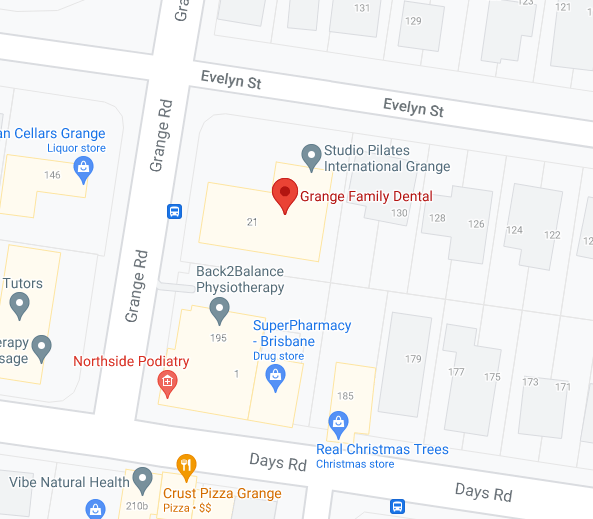About
At Grange Family Dental we are committed to providing quality, affordable dental care for your entire family. Our staff provide the highest standard of treatment, tailored specifically to each individual patient. We will strive to understand your needs and exceed your expectations.
Our Mantra is simple: “Look after the patients, and the practice will look after itself”, which has proven true in nearly 30 years of service in the one location.

Opening Hours
Monday 8am – 7pm
Tuesday 8am – 7pm
Wednesday 8am – 7pm
Thursday 8am – 7pm
Friday 8am – 4.30pm
Saturday 8am – 2.30pm
Appointments outside these hours may be organised for special circumstances.

© 2022 Grange Family Dental | All Rights Reserved.




